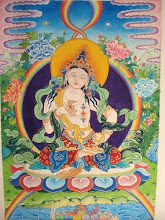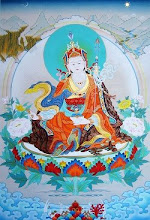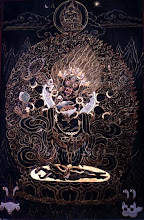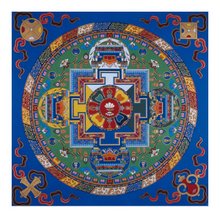 The book opens with Upali's first chapter on the birth and early life of the young prince of an Indian ruling family, a boy known as Siddartha who will when he grows up renounce his family, kingdom, and inheritance for the life of an aesthetic, eventually becoming the enlightened one we know today as the Buddha.
The book opens with Upali's first chapter on the birth and early life of the young prince of an Indian ruling family, a boy known as Siddartha who will when he grows up renounce his family, kingdom, and inheritance for the life of an aesthetic, eventually becoming the enlightened one we know today as the Buddha.Between the chapters on Siddartha's life are chapters on Upali, conscripted by Emperor Asok to compose the first biography of the Buddha. A late convert to religion, Asok was responsible for spreading Buddhism across a large part of Asia and even into parts of Europe, but only after leading campaigns of conquest, imperial adventures that created an empire spanning nearly all of current India, Pakistan, Afghanistan and parts of Iran. Among those conquests was Upali's kingdom, a genocidal campaign that has left the monk scibner with an abiding contempt for his emperor and patron.
The chapters on Upali are hit and miss. The more interesting ones detail the theological and historiographical issues facing the monk as he attempts to piece together a biography from material that was intended to preserve the essence of the teachings, and not the details of history. The less interesting chapters follow Upali's efforts to act as matchmaker between caste-crossed lovers, and the investigation of a monk's murder.
Still, this is a book worth the time and money if only to explore some of the issues involved in trying to sort out the historical from the mythological Buddha. Upali argues, for example, that the story of Siddartha's home leaving is far-fetched. As typically presented, the young prince leads a sheltered life, protected by his father from anything unpleasant. Siddartha's world is turned upside down in a matter of hours when he one day ventures out of his family's estate and witnesses poverty, sickness and death, sights that cause him to leave home that very evening in search of the meaning of life. How utterly fragile a person Siddartha would have to be, argues Upali, to have such unpleasantries cause him to run away. But even assuming he did leave home on that very same evening, its unlikely Siddartha had never been exposed to suffering. As the prince of a nation, Siddartha would have been groomed from a very early age in religious practices (which included animal sacrifices), statecraft (which involves a good measure of deceit and threat of violence), and martial arts (which on many occasions would have produced bloodletting, maiming, scarring, and even death).
Is the Buddha a god - or was he just a man? Is the purpose of his philosophy the means (leading an ethical life), or the end (enlightenment)? These and other such issues make A Spoke in the Wheel an engaging read for those interested in Buddhist or Indian history.
#



























0 comments:
Post a Comment